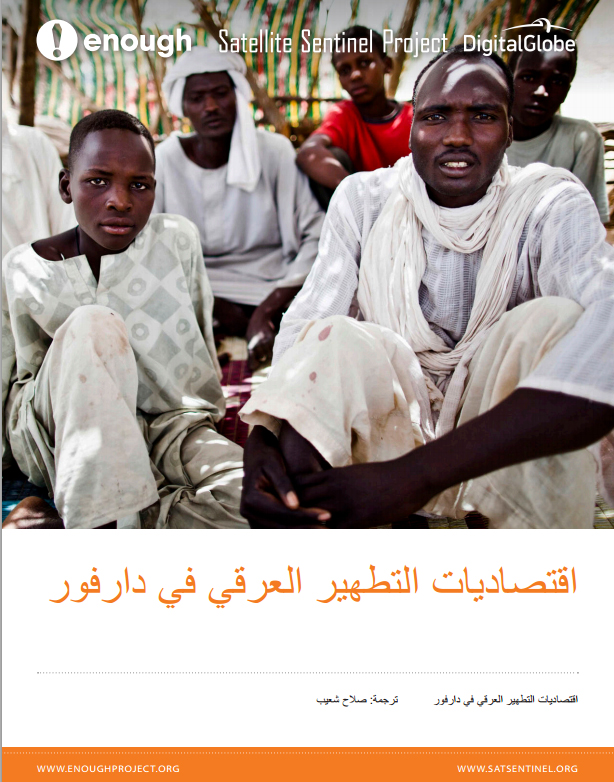
We're excited to announce the Enough Project's release of an Arabic language translation of our report, “Economics of Ethnic Cleansing in Darfur”. The report combines satellite imagery with testimonials from victims and historic analysis. With it, we hope to reach new audiences in Sudan and the broader Arabic-speaking world. Translating this revealing report is particularly significant at a time when Sudanese are energized by the possibility of change in their country. Despite a brutal crackdown on #SudanRevolts and Abena demonstrations, the Sudanese people continue to take to the streets. In the words of Amjed Farid of Sudan Change Now, “We demand freedom in our country. We deserve it.” In this time of transformation, we hope that our newly translated Arabic report increases the amount of information accessible to the Sudanese public about events unfolding far from the capital, in Darfur.
The report confirms the destruction and burning of villages in Central Darfur through independently analyzed satellite imagery secured by the Satellite Sentinel Project. By sharing this material with an Arabic-speaking audience for the first time, complete with correspondingly translated labels, we hope to highlight the Satellite Sentinel Project's unique capabilities to document ongoing atrocities. As mass protests spread across Sudan, the release of this translation can raise awareness of international crimes among a new audiences and about our abilities to capture evidence of destruction and atrocity crimes from satellites orbiting the earth.
The passion for change in Sudan is now palpable. By providing a new resource for Arabic-speaking scholars, civil society and activists, we hope that this report will feed that growing conversation. The report, “The Economics of Ethnic Cleansing in Darfur,” illustrates how the cash-strapped Sudanese government has been fueling violence in Darfur in order to consolidate control over gold, gum arabic, and rich arable land. The economic drivers of violence in Darfur have become particularly resonant at this moment, since protesters have taken to the streets to object to the removal of fuel subsidies and their government's mismanagement of their economy, which has faced a massive constriction since South Sudan's secession. In addition to tracing the roots of the violence, the report provides testimony from survivors who were pushed into Chad by violence in Central Darfur. The report shows that Janjaweed commander and ICC indictee Ali Kosheib, received financial and logistical support from Sudan’s Central Finance Minister. It also makes connections between the second vice president and resurgent violence between the Beni Halba and the Gimr in South Darfur. By making the links between senior government officials and ethnic cleansing in Darfur more explicit, the report's Arabic translation offers one more argument for those who are working for real change in Sudan.
Read or download the Arabic translation.
Read or download the English version.
Sahar Adora contributed to this post.

